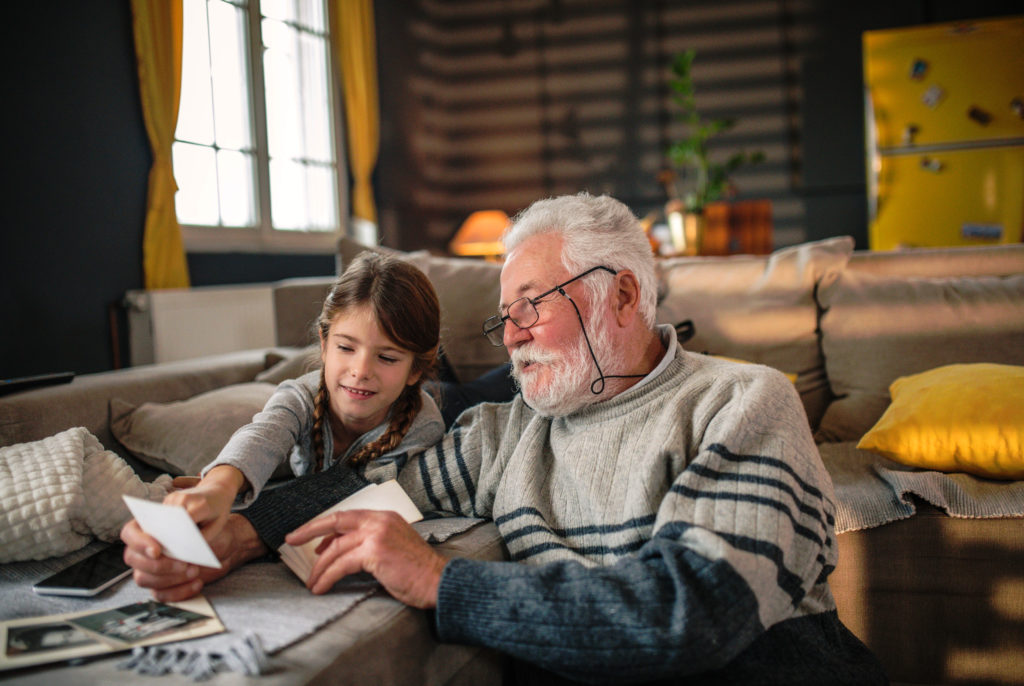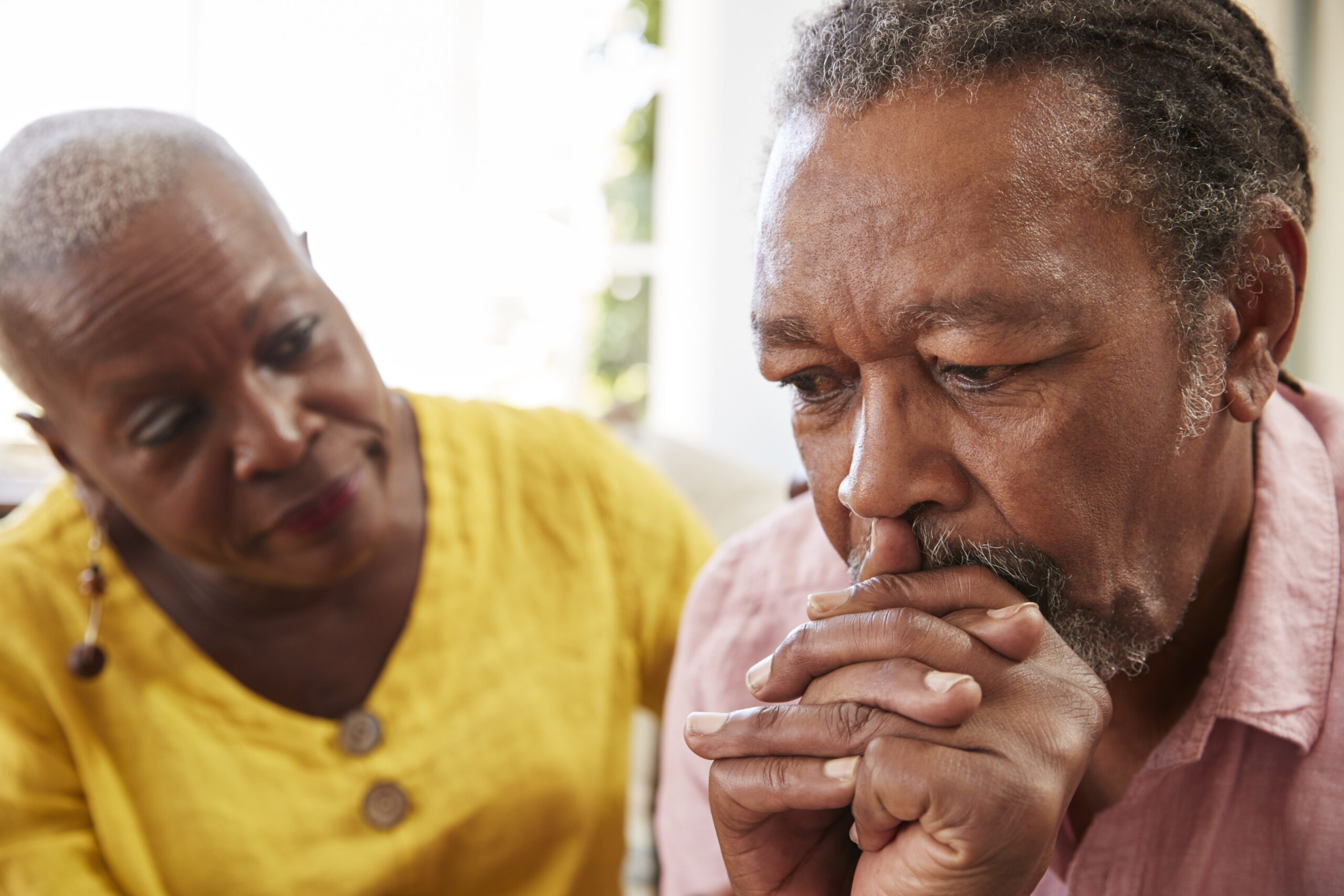Many people anticipate their Golden Years to be a time spent relaxing and pursuing hobbies they've always wanted to try, or traveling and having plenty of fun with family and friends. The reality for many seniors is that after they retire and their grown children leave the nest, they may feel more lonely and isolated than they anticipated. The effects of loneliness and isolation on seniors can be profound and may lead to depression or withdrawal from activities they used to enjoy.
Helping seniors find a purpose and reducing the loneliness they feel isn't just good for them emotionally. Studies show that elderly people who are lonely, depressed, or isolated from others may also have a higher risk of serious physical illnesses than others or be more susceptible to early-onset dementia. Learning how to spot these signs in your loved one can help you help them take steps to meet new people and engage in more social activities.
What is the Difference Between Loneliness and Social Isolation?
There is a difference between feeling lonely and being socially isolated. Unfortunately, the Covid-19 pandemic and subsequent lockdown affected many elderly people. Restrictions were especially difficult for those in assisted living or other long-term care properties, or people living alone at home, who may not have had companions inside a "circle." Socially isolated, living with perhaps a pet or one companion, or having a small circle of friends, doesn't necessarily mean that someone is lonely. Some people are natural introverts, while other seniors may enjoy the peace and quiet that a smaller social circle, after many years of work and family, brings.
Loneliness, however, can affect people even if they are surrounded by others. Some residents in a larger assisted living or retirement community, for example, may feel lonely even though there are plenty of activities on-site and many people around them.
If your senior lives alone or seems to have few friends or contacts, they may not actually be lonely. Being able to spot the difference between socially isolated and lonely can help you help them become more involved or reach out to meet new friends.
How Can Feeling Lonely or Being Isolated Affect Older Adults' Health?
According to the CDC, many adults over 50 may be lonely in ways that may put their health at risk. Studies by the CDC indicate that social isolation can increase the risk of premature death from all causes, on par with the increased risk posed by smoking, obesity, and a sedentary lifestyle. Furthermore, social isolation increases the risk of dementia by 50%. Loneliness, characterized by poor social relationships, can increase the risk of heart disease by 29% and stroke by 32%.
Lonely seniors may be more at risk for depression and suicide or may develop an anxiety disorder. Sometimes, a lack of purpose can exacerbate the listlessness or feelings of eunni that loneliness brings.
How Can You Know Your Risk For Loneliness and Social Isolation?
Losing a loved one, especially a spouse, can also trigger feelings of loneliness. Your older family member may have depended on their partner for most of their interaction and companionship. If the two of them had grand retirement plans, the disappointment of those going unfulfilled could make an already sorrowful situation worse.
Prior to a partner's passing, many senior spouses may have been thrust into a caregiver role, which can be stressful even for people who have the training to care for an infirm adult. Spouses with no caregiver or medical training or who didn't anticipate tending to the physical needs of their partner may feel unexpected stress and resentment, plus the demands of that role, can shrink their world and leave them feeling lonely and cut off from others.
Lack of a sense of purpose and failure to engage in meaningful activities that bring seniors in contact with other people come together all create social isolation. And, while having a small circle of friends may not mean someone is lonely, it's a large indication that they may be. If your senior fits any of these scenarios, then there are ways that you can reach out and help them increase their social activity and meaningful interaction.
How Can You Stay Connected With Friends and Family?

The internet and social media have made it much easier for families and friends to stay in contact. Even if your senior is socially isolated physically doesn't mean they cannot have a wide circle of friends online. Facebook is a popular site for older adults, and many hobbies or special interest websites also have chat features, where members can interact with one another. Consider creating a family group chat where everyone can catch up easily, share pictures, and keep seniors in the loop of what is happening with children and grandchildren.
However, there are a lot of internet scams, and predators often target elderly people who may not be as web-savvy. Sign yourself and your senior up for fraud detection monitoring to keep them from dangerous websites that could infect their computer with malware or spyware.
Self-care and physical activity are mood-boosting activities that can help seniors feel more like being social or participating in group activities. Exercise classes like Silver Sneakers or chair yoga combine social interaction with light exercise. If your senior attends regularly, they can meet new friends with a common interest.
Attending the local senior center and participating in activities there can also help reduce isolation. Look for virtual events that seniors with mobility or travel challenges can participate in. Also, don't overlook volunteer opportunities in your community, which can broaden your senior's social circle or help them put their skills and life experience to use.
Conclusion
Helping an elderly loved one reduce feelings of loneliness and isolation is one of the best ways that you can help them preserve their physical and mental health. If you're concerned about your loved one's small social circle, consult a senior living advisor. They can help you find assisted living or retirement communities with a strong social program and plenty of different activities.





